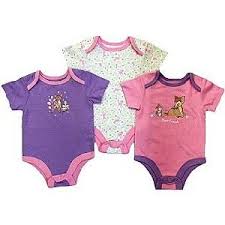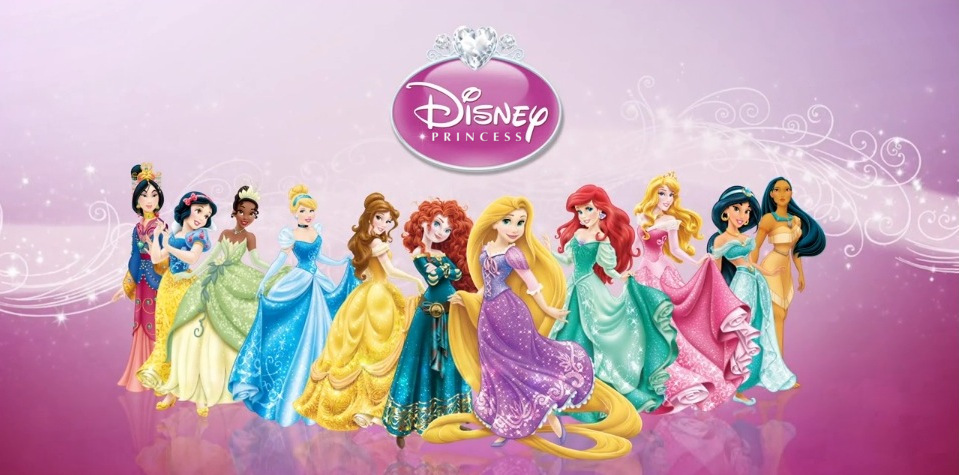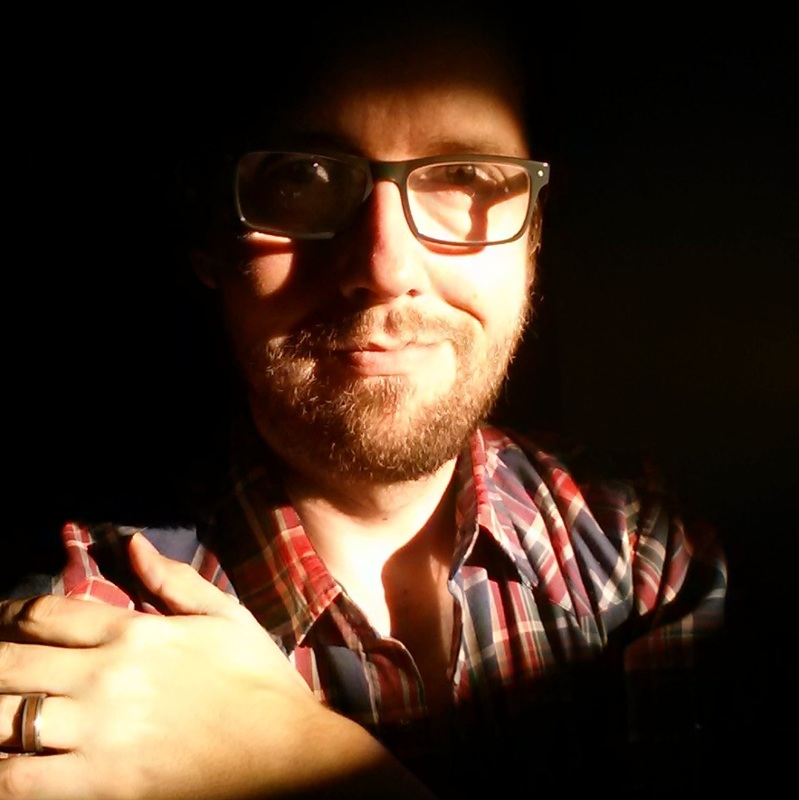|
NOTE: This is part one in a series about the images and characterizations of women I see depicted in mainstream media; how those images might affect my future children; and what responsibility I have, as a man and writer, when it comes to writing for women.  Full disclosure: I don't have a daughter. I don't have kids. My wife and I are still in that abstract place where we talk about our future kids in relation to the world around us... abstractly; like we're giving ourselves bench tests as to whether we could see ourselves parenting --- not abstractly, but in real world concrete ways. One day, while perusing Pinterest, she found a onesie that had Disney's Bambi on it. It was pink. The onesie, not the deer. "Cute," she said, but kept looking for another option. My wife, for the record, is a huge fan of Bambi. Her first cat was named after him. Yes... HIM. She likes to remind me that Bambi is a boy's name. Because he's a boy. So she was relieved to find a similar Bambi onesie in blue. Her extended search was not because she's abstractly thinking about us having a baby boy and heaven forbid he wear pink, but because we're not huge fans of pink (we're really not) and she was seeing if there were alternatives, because no matter the gender of our abstract future children, we'll be actively seeking a variety of colors with which to surround them. I wonder sometimes what color we will paint our abstract kids' rooms. Will we determine the paint swatches by their gender? Will we do one of those gender reveal cakes with the pink or blue cake mix? What toys will we buy our sons and what toys will we buy our daughters and what toys will suit them both? What books and movies and shows will guide them too as they grow up? This got me thinking about some recent posts I've read about female characters, their portrayals, and what we're putting in front of our children (and ourselves). More and more, I have started to become acutely aware of how creative property --- movies, plays, books, TV, comics, etc. --- is branded and marketed; how the powers that be (executives and focus groups) decide what my abstract future kids will see when they walk through the toy store or clothing department. What they see on TV. On magazines. The heroes they follow in books and on film. You see where this is going. The world markets differently to girls and boys (I know, newsflash right?). It just does. We perpetuate it. Not all of us, but enough of us that the powers that be don't seem too concerned (just maybe a bit). Earlier this year, you may have read about an animated female character getting a makeover so she could be more marketable off-camera. I read those stories and something about them frightened me. This is not, however, another blog post ripping Disney a new one for taking Merida (the heroine of Pixar's BRAVE) and giving her a sexy new look (full disclosure, Disney: many of us have no problem with sexy in appropriate settings --- it's just that Merida is NOT one of those settings, because kids don't need sexy, they don't need to grow up that fast, and it's frightening enough that seven year-olds fawn over Justin Bieber and Taylor Lautner. Please, Disney, don't make it worse). No, enough people have gone after the Mouse House and Disney has retreated back to the literal drawing board. No, what this is --- this is me looking around at the recent Disney Princessification of Merida and seeing a bigger, more frightening pattern. I didn't invent the word princessification, it is a thing... a way of the world which promotes being a princess as a lifestyle choice to emulate (full disclosure: that's not what frightened me). Disney is probably the chief campaigner of the princessification movement. And that would be fine, if Disney left its princesses alone during the marketing phase and promoted them as the princesses we see on screen. What frightens me isn't that Disney (and, to be fair, every other marketing engine on Earth) is telling young women (and, by extension, young men) that girls have to be pretty --- it's that they're telling them that being pretty is all they have to be. Again, there are lots of articles out there bringing up good points about how society advocates a superficial world --- teeth whitening, hair color, color contacts, diet pills, anti-aging creams, plastic surgery, shows about plastic surgery, etc.; there is an overwhelming bombardment on our senses (especially if you read magazines or watch late-night infomercials) telling adults that we're not pretty enough. We need help. We need the magic product to make us desirable. This marketing extends downs to our kids (abstract or real, depending on where you are in the parenting spectrum), especially girls. While that's not something to be excited about, I think Merida's makeover brought to light a much scarier scenario than "you should be pretty." Mark Whiitington mentions it in his opinion piece on Yahoo Voices: they took away Merida's bow and arrow. They took away the tomboy. They took away everything about her that made her, well, HER. What I've noticed, beyond Merida, is that ALL the Disney princesses have been "Merida'd" --- they've all been princessified. Not just made prettier, but portrayed in one single light. They have, in some form, been stripped of the very identity, gumption, or spark that makes them role models. Look at the image above. The eleven princesses. They are dressed for the party, for the ball, and I'm sure Disney would say they're just dressed up because that's what they wore for their coronation ceremony... they're just dressed up. There are plenty of people who will argue there is no shame in wanting to "feel pretty." Heck, I like to put on a suit, trim my beard, and polish up for date night with my wife, and she likes to get dressed up too. We like the pretty, but not when it means losing the awesome power that comes with being independent and self-aware. Merida lost her bow and arrow. How about Rapunzel and her frying pan? I guess we don't need women defending themselves. And Belle, seriously, do you ever see her with a book anymore? The woman should be leading a literacy campaign. And Mulan --- she SAVED CHINA --- but she isn't proudly wearing her armor when she hangs out with Cinderella and Snow White? Why not? They don't seem to embody the spirit of the women that kicked some ass during their films. That's where I take issue.
You want to push pretty, Disney? Push pretty. But also push the image of women who take care of themselves. Show my future daughter that women should read books, they should put on armor and fight for what they believe, they should be totally prepared to defend themselves, stand up for themselves, speak for themselves. Yes, Disney (and anyone reading this who thinks I'm over-reacting), the image above is not the end-all be all image of those women, as they live on in their movies and books, but it is the MAIN image you promote of them. It's the defining image you sell to us. You sell to our children. You choose not to sell the empowering images --- the scholar, the warrior, the independent spirit --- you choose to leave that out at the end of the day. And side rant: where the heck is Giselle, who slayed a dragon and saved her prince? I know she was only a cartoon for like 10 minutes before she turned into Amy Adams, but seriously --- the girl scaled a skyscraper and battled a GIANT dragon... oh wait... maybe that's why she's not in this line up; she's more than just a pretty face (note to Disney: so are they all). All that being said --- how do I write women? I'm not asking, like a "how to," but asking in a self-examination kinda way. Looking over my work and my future work, this whole topic of discussion makes me ponder. Do I write women characters that have more than one dimension? Do I emphasize the pretty over the gumption? Are they strong? Independent? Are they awesome princesses of legend or are they marketed to sell? Am I creating role models for my abstract future daughters? What about my abstract future sons? What about my real life nephews and real life Goddaughter? What type of women am I showing them in my writing? In Writing for Our Daughters Part II, I'm gonna try to tackle that. Please share and keep the discussion going. I've just opened up my comments, so if you have thoughts about the words I've said, I'll read them (and reply if warranted). Thanks for reading. |
Jeremy's blog
Thoughts. From my brain. Anything to do with how we tell stories and the stories we tell each other. Literally and figuratively. About JeremyWriter. Husband. Father. Effulgent dreamer. A Fightin' Irishman (@NDdotEDU '01). A playwriting Bobcat (MFA in Playwriting, @OhioU '13). I write plays. I'm a geek. I wanted to be an astronaut. I go places in my head.
Categories
All
Archives
January 2022
|



 RSS Feed
RSS Feed
